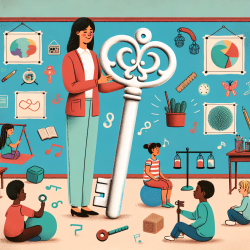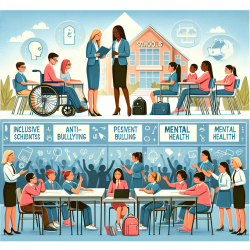Introduction
As practitioners dedicated to creating positive outcomes for children, understanding and implementing culturally responsive practices is essential. The research article "Supporting intersecting cultural needs of gender and age by increasing cultural safety and humility for Housing First initiatives" provides valuable insights that can enhance our approach to supporting diverse populations experiencing homelessness. This blog will explore key findings from the study and offer practical steps for practitioners to improve their skills in delivering culturally safe and humble services.
Key Findings
The study identifies three key themes:
- Insufficient built environments create challenges across gender and age.
- Cultural safety and humility concerns at the intersection of gender and age.
- Implications for a culturally-responsive Housing First implementation.
Practical Steps for Practitioners
1. Understand and Address Environmental Challenges
Practitioners must recognize that the lack of affordable and accessible housing significantly constrains the choices available to people experiencing homelessness (PEH). To address this, practitioners should advocate for more affordable housing options and work towards creating safe and secure environments tailored to the needs of different sub-populations, such as youth, older adults, and women.
2. Incorporate Cultural Safety and Humility
To provide culturally safe and humble services, practitioners should engage in ongoing self-reflection and education to understand the cultural backgrounds and experiences of their clients. This involves recognizing power imbalances, addressing biases, and creating an environment where clients feel respected and valued. Practitioners can achieve this by:
- Participating in cultural competence training.
- Engaging in open dialogue with clients and community members.
- Implementing policies that prioritize cultural safety and humility.
3. Develop Age-Specific and Gender-Specific Models
Housing First programs should be adapted to cater to the unique needs of different sub-populations. For example, older adults may require specialized medical care and age-appropriate housing options, while youth may need support with education and skill development. Practitioners should collaborate with housing, health, and social service providers to ensure a comprehensive and coordinated response to these needs.
4. Prioritize Prevention and Early Intervention
Preventative measures are crucial in addressing the root causes of homelessness. Practitioners should work with schools, community organizations, and other service providers to identify and assist at-risk individuals before they become homeless. This includes providing support for eviction prevention, early intervention programs, and family mediation services.
Encouraging Further Research
While the findings from this study provide valuable insights, there is always more to learn. Practitioners are encouraged to engage in further research to deepen their understanding of the cultural needs of diverse populations. This can involve participating in community-based participatory research, collaborating with academic institutions, and staying informed about the latest studies and best practices in the field.
Conclusion
Implementing the principles of cultural safety and humility in Housing First initiatives is essential for creating positive outcomes for diverse populations experiencing homelessness. By understanding and addressing environmental challenges, incorporating cultural safety and humility, developing age-specific and gender-specific models, and prioritizing prevention and early intervention, practitioners can enhance their skills and provide more effective support to their clients.
To read the original research paper, please follow this link: Supporting intersecting cultural needs of gender and age by increasing cultural safety and humility for Housing First initiatives.










